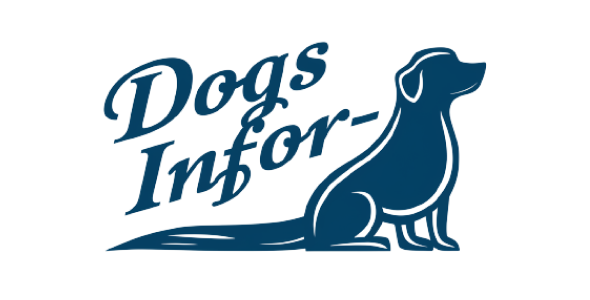Is your Dog Gaining Weight? Discover the causes, risks, and a step-by-step guide to help your furry friend achieve a healthy weight in this article of Dogs Infor!
Causes of Dog Gaining Weight
While it’s normal for dogs to gain some weight as they age, excessive weight gain can lead to health problems. Here are some common causes:
Overfeeding
- Portion Control: Many owners overestimate the amount of food their dog needs, leading to calorie surplus and weight gain.
- Treats and Snacks: Excessive treats and snacks can contribute significantly to calorie intake.
- Food Type: Some dog foods are higher in calories than others, so choosing a food appropriate for your dog’s age, activity level, and breed is crucial.
Lack of Exercise
- Sedentary Lifestyle: Dogs that don’t get enough exercise are more likely to gain weight.
- Breed-Specific Needs: Different breeds have different exercise requirements, so ensure you’re providing enough activity for your dog’s breed.
- Age-Related Changes: As dogs age, they may become less active, requiring adjustments to their exercise routine.
Medical Conditions
- Hypothyroidism: This condition affects the thyroid gland, leading to a slowed metabolism and weight gain.
- Cushing’s Disease: This condition causes the body to produce excess cortisol, which can lead to increased appetite and weight gain.
- Other Conditions: Other medical conditions, such as diabetes or arthritis, can also contribute to weight gain.
Age and Breed Predisposition
- Senior Dogs: As dogs age, their metabolism slows down, making them more prone to weight gain.
- Certain Breeds: Some breeds, like Labrador Retrievers and Beagles, are genetically predisposed to weight gain.

Risks of Dog Obesity
Obesity in dogs is a serious health concern, increasing the risk of various health problems and significantly impacting their quality of life. Here are some of the major risks:
Joint Pain and Arthritis
- Increased Stress on Joints: Excess weight puts additional stress on joints, leading to pain and inflammation.
- Accelerated Arthritis: Obesity can accelerate the development of arthritis, making movement painful and difficult.
- Reduced Mobility: Obesity can limit a dog’s mobility, making it harder for them to exercise and enjoy daily activities.
Diabetes
- Insulin Resistance: Obesity can lead to insulin resistance, making it harder for the body to regulate blood sugar levels.
- Increased Risk of Diabetes: Obese dogs are at a significantly higher risk of developing diabetes.
- Complications: Diabetes can lead to various complications, including kidney failure, blindness, and infections.
Heart Disease
- Increased Strain on the Heart: Obesity puts extra strain on the heart, increasing the risk of heart disease.
- High Blood Pressure: Obesity is often associated with high blood pressure, which can further strain the heart.
- Heart Failure: In severe cases, obesity can lead to heart failure.
Shortened Lifespan
- Overall Health Impact: Obesity has a negative impact on overall health, increasing the risk of various diseases and reducing lifespan.
- Reduced Quality of Life: Obese dogs often experience reduced mobility, pain, and discomfort, impacting their quality of life.

Helping Your Dog Lose Weight
Helping your dog lose weight requires a multi-faceted approach that involves consulting with your veterinarian, making dietary changes, increasing exercise, and implementing behavioral modifications.
Consult with Your Veterinarian
- Personalized Plan: Your veterinarian can assess your dog’s overall health, determine a safe weight loss goal, and recommend a personalized weight management plan.
- Underlying Conditions: They can rule out any underlying medical conditions that may be contributing to weight gain.
- Monitoring Progress: Regular checkups with your veterinarian are essential to monitor your dog’s progress and make adjustments to the plan as needed.
Dietary Changes
- Weight Loss Food: Your veterinarian may recommend switching to a weight loss dog food specifically formulated to provide fewer calories and increased fiber.
- Portion Control: Carefully measure out your dog’s food according to your veterinarian’s recommendations and avoid overfeeding.
- Treat Reduction: Limit treats and snacks, offering them sparingly and choosing low-calorie options.
Avoid Table Scraps: Avoid giving your dog table scraps, as these can be high in calories and fat.
Increased Exercise
- Gradual Increase: Gradually increase your dog’s exercise level, starting with short walks and gradually increasing the duration and intensity.
- Variety: Incorporate a variety of activities, such as walks, runs, swimming, and playtime, to keep your dog engaged and motivated.
- Interactive Play: Engage in interactive games like fetch or hide-and-seek to encourage physical activity and mental stimulation.
Behavioral Modifications
- Feeding Schedule: Establish a regular feeding schedule and avoid free-feeding, which can lead to overeating.
- Puzzle Toys: Use puzzle toys to provide mental stimulation and slow down eating, making mealtimes more challenging and engaging.
- Training: Train your dog to perform tricks or commands that require physical activity and mental engagement.
Conclusion
Obesity in dogs is a serious health concern that can lead to various health problems and significantly reduce their quality of life. Helping your dog lose weight involves a multi-faceted approach that includes consulting with your veterinarian, making dietary changes, increasing exercise, and implementing behavioral modifications. Gradual and safe weight loss is crucial for your dog’s health and well-being.

Related Post
Signs Your Dog Needs Probiotics: Digestive Problems
Green Stool In Dogs: Causes, Concerns And When To Worry
Dental Anatomy Of Dogs: Unveiling The Secrets